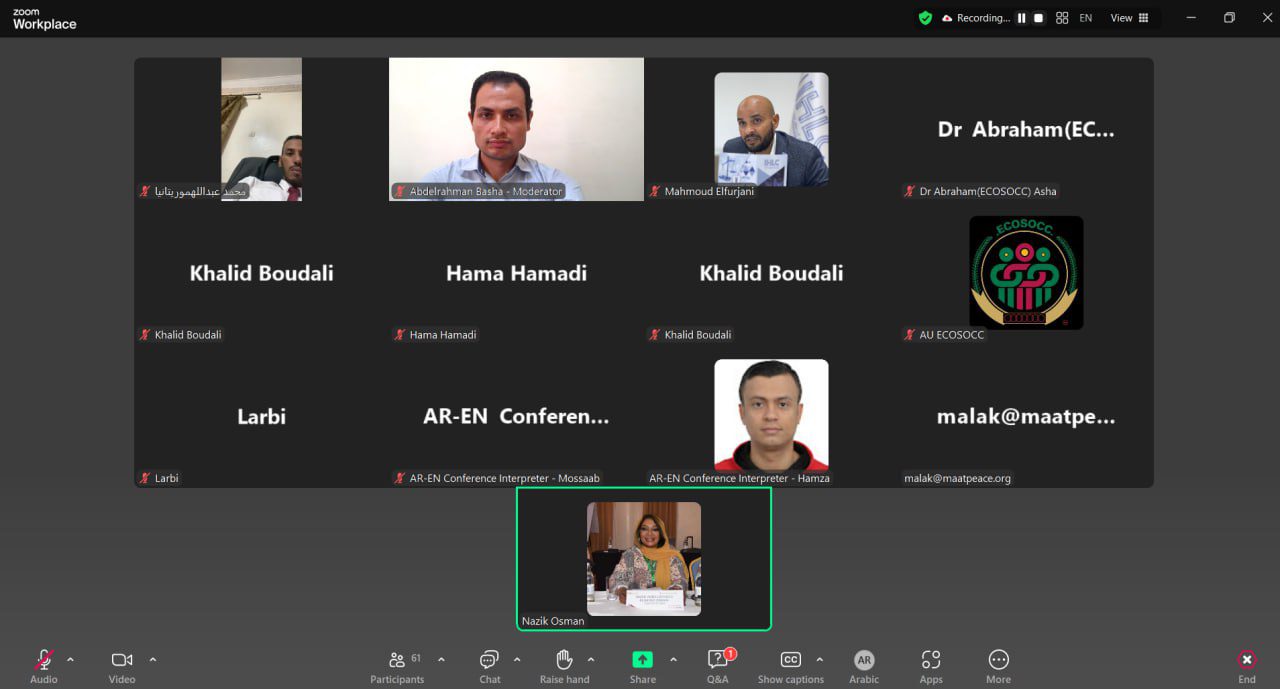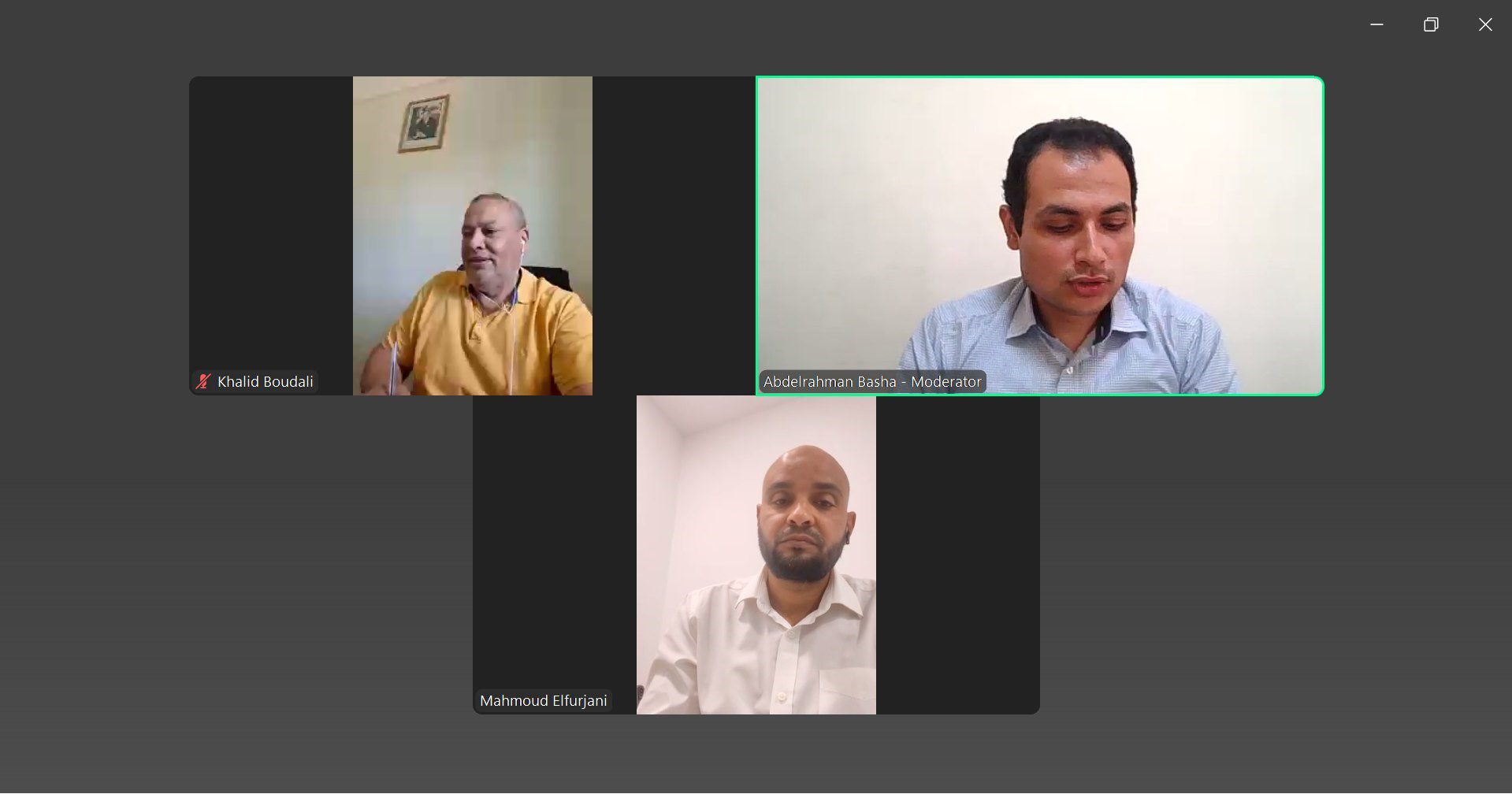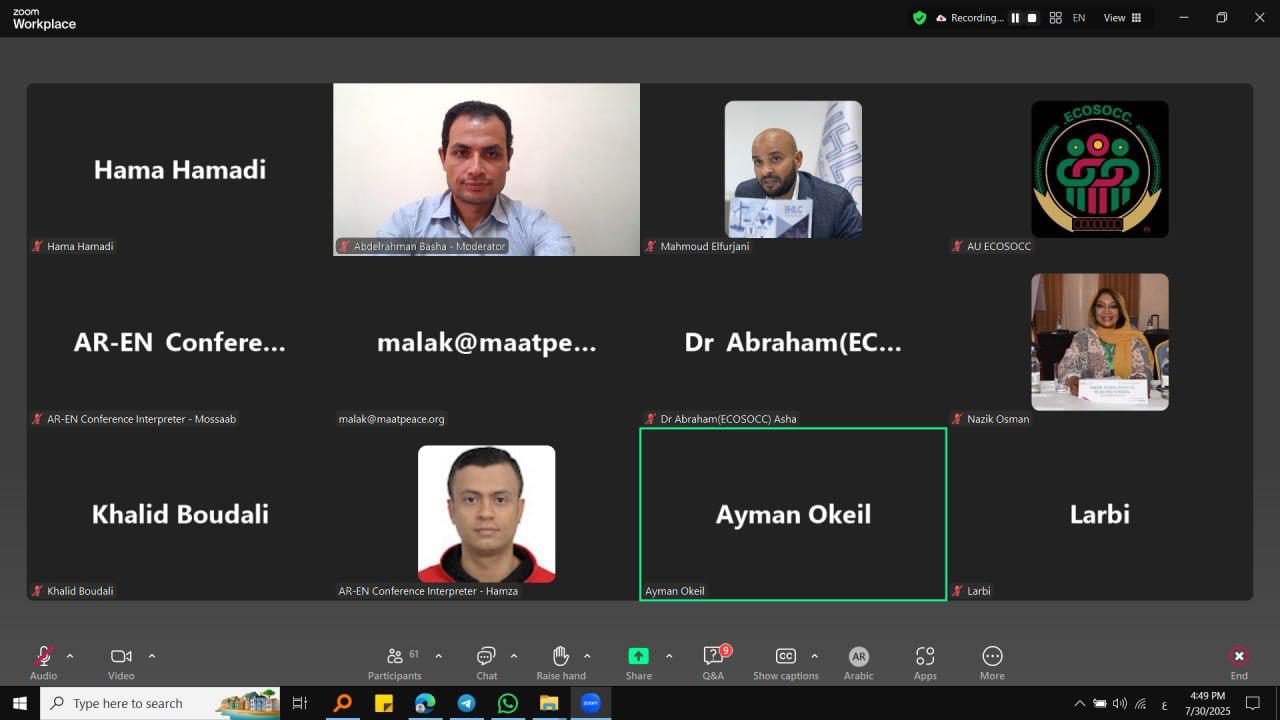“Okeil”: ECOSOCC is the Gateway to Open Dialogue with Governments to Adopt Migration Policies that Protect Migrants
“Boudali”: We Reject the Transformation of North African Countries into Traffic Police Restricting the Movement of Migrants within the Continent
Maat for Peace, Development, and Human Rights held a webinar titled "People on the Move: Rethinking North Africa’s Migration Challenges," aimed at highlighting the main strategies and positive practices adopted by North African countries in managing the issue of mobility within the continent. This aligns with efforts to produce a draft of guiding principles that represent a comprehensive vision for civil society in the North African region on ways to enhance the rights situation for migrants in North Africa, with participation from representatives of North African countries in the African Economic, Social, and Cultural Council (ECOSOCC).
During the webinar, Ayman Okeil, Chairman of Maat and Deputy Presiding Officer of African ECOSOCC for the North African region, emphasized that the issues of displacement and migration are among the biggest challenges faced by the African continent for years. He noted that the turning point lies in changing North Africa’s perception of migrants and refugees from being a burden to a developmental element. He pointed out that ECOSOCC serves as the African gateway to foster dialogue between governments and civil society organizations on adopting migration policies that ensure the protection of refugees and migrants, respect the principle of non-refoulement, provide access to judicial redress, and create a conducive environment for fulfilling the rights of refugees and migrants, all within a climate where North African countries exchange information extensively.
For his part, Khaled Boudali, former Presiding Officer of ECOSOCC, expressed his rejection of the transformation of North African countries into traffic police that restrict the movement of migrants within the continent under the pressures of European forces opposed to African migration. He stressed that African civil society is responsible for creating a comprehensive and fair vision that guarantees the principle of "justice of movement" for all refugees, migrants, and internally displaced persons in North Africa.
Nazik Abdelhamid, Head of the Social Affairs and Health Sector at African ECOSOCC, indicated that African civil society must focus its efforts on developing fair policies for refugees, internally displaced persons, and migrants in North Africa. She emphasized that the implementation of these policies must occur through a shared regional mechanism between ECOSOCC and the African Commission to enhance the rights of migrants.
Mahmoud Farajani, representative of Libya in ECOSOCC, highlighted the need for North African policies managing the movement of migrants to include efforts to hold former colonizers in the continent accountable for creating crises within African countries, some of which have become source countries for migration and displacement movements. He stressed the necessity of activating the principle of shared responsibility.
Hamid Hamadi, representative of the Union of Students of the Red River and Gold Valley, pointed out that weak data collection mechanisms, the absence of policies, the proliferation of trafficking and smuggling networks, and the lack of funding directed towards community initiatives dealing with migration and displacement are significant challenges that must be addressed within African efforts to manage the movement of migrants in North Africa.
Mohamed Abdullah, representative of Mauritania in ECOSOCC, emphasized the need to integrate the specific vision for migrants in North Africa into the policies being formulated by civil society, to ensure a comprehensive vision for all parties, including the main parties facing the challenges the continent encounters.
Abdul Rahman Pasha, the event's director, stressed that the future of North Africa in positively addressing the crisis of migrants in the region relies on moving away from isolated island policies and adopting collective visions and participatory efforts to develop a clear action plan to enhance the reality of migrants in North Africa across all levels, especially in terms of rights.
This webinar is part of Maat's interest in the crisis of migration, asylum, and displacement in North Africa, and the rights reality for migrants in the northern region of the continent, coinciding with the challenges faced by the countries in the region in balancing their human rights obligations towards migrants with efforts to maintain security and stability in the northern part of the continent.


shortlink: https://maatpeace.org/en/?p=45150












